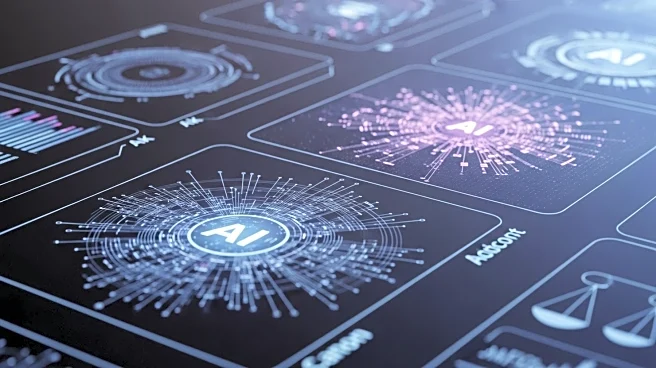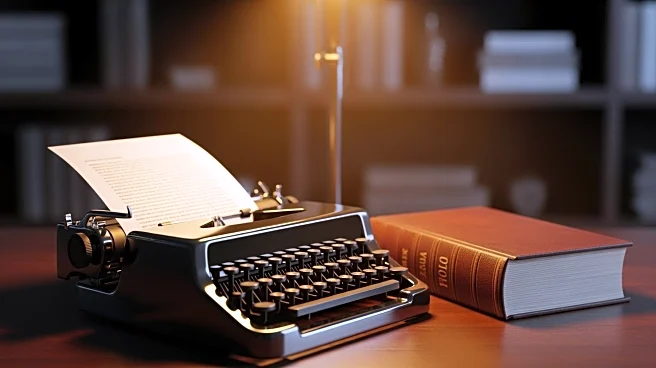What's Happening?
Warner Bros. Discovery is embroiled in a legal dispute involving the use of images from the film 'Blade Runner 2049' by Tesla. The lawsuit, initiated by Alcon Entertainment, claims that Tesla used images from the movie in an AI image generator to create promotional materials without proper licensing. The court has dismissed some claims against Warner Bros. Discovery, stating that there is insufficient evidence to prove the studio provided high-resolution images to Tesla or had the authority to prevent Tesla's alleged infringement. However, Warner Bros. Discovery still faces a claim for contributory infringement, as it is accused of facilitating the alleged misconduct. The case raises questions about the legality of using AI to replicate copyrighted materials without a license.
Why It's Important?
This case highlights the growing legal complexities surrounding the use of AI in content creation, particularly concerning copyright laws. The outcome could set a precedent for how AI-generated content is treated under intellectual property law, impacting industries that rely on AI for creative processes. Companies like Tesla and Warner Bros. Discovery could face significant legal and financial repercussions if found liable for copyright infringement. The case also underscores the need for clearer regulations and guidelines on AI's role in content creation, which could influence future business practices and legal frameworks in the entertainment and technology sectors.
What's Next?
Alcon Entertainment has been given another opportunity to amend its claims for direct and vicarious copyright infringement. The ongoing legal proceedings will continue to explore the extent of Warner Bros. Discovery's and Tesla's responsibilities in the alleged infringement. The case's outcome could influence future collaborations between technology companies and entertainment studios, particularly in how they handle intellectual property rights. Stakeholders in the entertainment and tech industries will be closely monitoring the case for its potential implications on AI usage and copyright law.
Beyond the Headlines
The lawsuit also reflects broader concerns about the ethical use of AI in creative industries. As AI technology advances, the line between inspiration and infringement becomes increasingly blurred, raising questions about the protection of original works. This case could prompt a reevaluation of how intellectual property laws are applied to AI-generated content, potentially leading to new legal standards and practices. Additionally, the case may influence public perception of AI's role in creative processes, affecting how companies approach AI integration in their business models.










